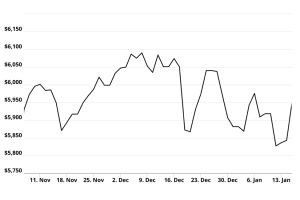A debt-limit standoff has embroiled the market in volatility in recent days. As we approach the so-called X-date (or expiration date) for the debt ceiling to be raised before benefits begin to be halted, various groups are bracing for impact.
Among the individuals who could be adversely impacted by a U.S. default are veterans. If payments need to be cut back as the government runs out of money to pay its bills, it’s conceivable that payments to various government-funded groups could stop for a period of time. For veterans, many of whom rely on benefits to survive, such a situation would be terrible.
Of course, most experts suggest that we won’t get to this point. An 11th-hour deal is expected to materialize. But given expectations that the government will run out of money as soon as June 1, we’re cutting it close.
Let’s dive into what this whole debacle could mean for veterans.
How Will Veterans Be Impacted By a Debt Limit Default?
As mentioned, all are hoping that politicians can get something done in time to avoid catastrophe. Assuming that’s the case, there’s little to be worried about. And judging by the price action of stocks today, it appears many investors are pricing in a deal.
But for the most vulnerable populations, this situation is certainly too close for comfort. Veterans, many of whom rely on government payments to pay for food and housing, could be at greatest risk of personal default in such a scenario.
Cole Lyle, who runs a non-profit advocacy group called Mission Roll Call, suggested that “if benefits are delayed for any length of time, people who are counting on government payments might have to turn to credit cards with increasingly costly interest rates … There is no good that comes from a default, either to veterans, to active duty service members or other Americans that rely on benefits from the United States government.”
If payments are forced to stop for any period of time, the hope would be that Republican lawmakers would push for the prioritization of veteran’s benefits, given their stance on defense spending. And with rare bipartisan support for a defense spending increase next year, veteran benefits may be among the last to be cut any time soon.
That said, as the days pass, a debt-limit default becomes an increasingly possible black swan event. Let’s hope this time is just like every other debt-limit debate — one that ends in a last-minute deal.
On the date of publication, Chris MacDonald did not have (either directly or indirectly) any positions in the securities mentioned in this article. The opinions expressed in this article are those of the writer, subject to the InvestorPlace.com Publishing Guidelines.




